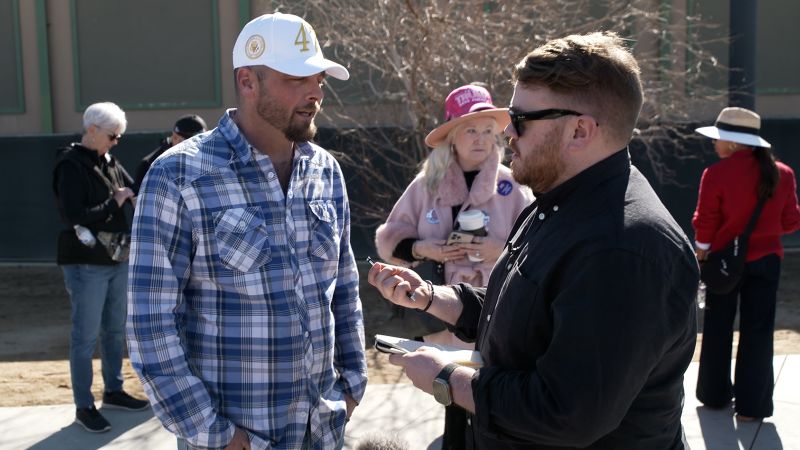There’s a tendency in this heated political climate to simply reject people who are saying false things and to write off conspiracy theorists writ large.
But as the US approaches the third straight election in which misinformation — and the fight against it — is expected to play a role, it’s important to understand what’s driving people who don’t believe in US elections.
…
I talked to O’Sullivan about the documentary, in which he has some frank and disarming talks with people about what has shaken their belief in the US. But he paints an alarming picture about the rise of fringe movements in the country.
Our conversation, conducted by phone and edited for length, is below:
WOLF: What were you trying to accomplish with this project?
O’SULLIVAN: So much of mainstream American politics now is being infected and affected by what is happening on what was once considered the real fringes — fringe platforms, fringe personalities.
And I think really what we want to do in this show is illustrate how these personalities may be pushing falsehoods, but they’re no longer fringe. This is all happening right now. And it is having a big effect on our democracy.
…



Because the 1st wave of people on the internet were nerds and geeks. People driven by hope and optimist to make the world a better place and using the internet to do things they were already inclined to do… learn and share. You had to read, and write and things were generally long form interactions. Chat rooms required that you write sentences and paragraphs. It was also largely hosted by universities and other non-profit interests. The philosophy of Open Source and Freesoftware was rampant in the 2000s, and then declined as the big 5 took over the internet.
Now the internet is driven by corporate greed and the exploitation of the LCD’s lazy monkey-brain interactions. EVerything now is a blurb, a meme, a click, a reaction emoji. A 8 min youtube video is ‘too hard’ now for the average internet user.